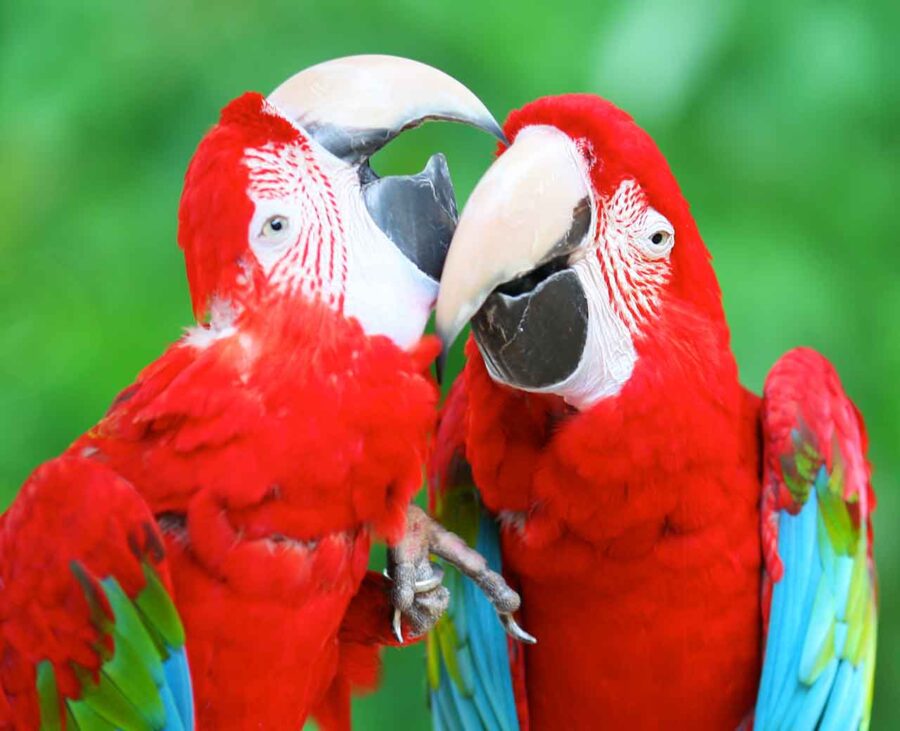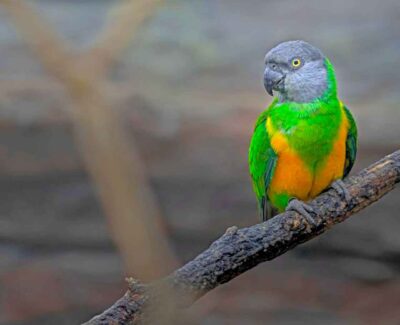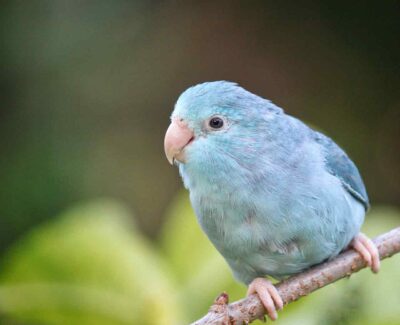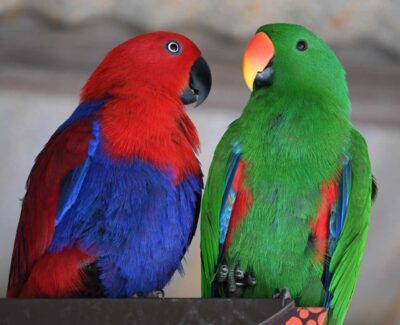
What to Know About Owning a Macaw
With their vivid plumage, impressive size, and lively personalities, macaws are among the most recognizable and sought-after pet birds. Beloved for their intelligence and charisma, these parrots can make extraordinary companions—but they also come with big responsibilities. If you’re considering adding a macaw to your family, here’s what you should know about their traits, care needs, and what life with one of these stunning birds is really like.
Distinctive Features of Macaws
Macaws are part of the parrot family and are native to Central and South America. They range from medium-sized species, like the Hahn’s macaw, to giants like the hyacinth macaw, which can reach over 3 feet in length (including their long tail feathers). Some of their most defining features include:
Bright plumage
Macaws are known for their dazzling colors, often in combinations of blue, red, yellow, and green.
Strong beaks
Their powerful, curved beaks are built to crack tough nuts and seeds. Therefore, they’ll need plenty of appropriate toys and chew items to exercise this natural behavior.
Intelligence and vocal ability
Macaws are quick learners and excellent mimics. While not every individual will talk, most macaws enjoy vocalizing loudly and frequently.
Long lifespans
With proper care, macaws often live 40–60 years, and some even longer.
Personality and Temperament
Macaws are known for being bold, social, and highly interactive birds. They thrive on companionship and attention, often forming strong bonds with their humans. Owners can expect:
Playful energy
Macaws love to climb, chew, and explore. They need plenty of space and enrichment to prevent boredom.
Strong voices
These parrots are not quiet pets. Their calls can carry for long distances, which makes them challenging in apartments or close living situations.
Affection and loyalty
Many macaws enjoy being with their humans and can be affectionate, though they also have strong wills and may test boundaries.
Potential for nippiness
Their large beaks require respect. Consistent training and positive reinforcement are essential for building trust.
Care Requirements for Macaws
Caring for a macaw is a long-term commitment that requires time, resources, and patience. Here are some essential considerations:
Housing
Macaws need a very large cage with enough room to stretch their wings fully. A play stand or designated out-of-cage area is also highly recommended.
Diet
A balanced diet should include high-quality pellets, fresh fruits, vegetables, and limited nuts or seeds as treats.
Enrichment
These parrots require daily mental and physical stimulation. Rotating toys, foraging opportunities, and training sessions can help keep them engaged.
Socialization
Macaws need daily interaction with their owners. They are not birds that can be left alone for long periods without risking behavioral issues.
Veterinary care
As with other types of birds, routine checkups with an avian veterinarian are important for monitoring health and longevity.
Is a Macaw the Right Bird for You?
Macaws can be spectacular pets for the right household—but they aren’t suited to everyone. Their size, noise level, and care needs generally make them a better fit for experienced bird owners who have the time, space, and dedication to meet their requirements.
If you’re prepared for the commitment, owning a macaw can be an incredibly rewarding experience, as their intelligence, beauty, and loving nature have earned them a special place in the hearts of bird enthusiasts worldwide.
Still deciding which bird is right for you? Whether your perfect companion is a show-stealing macaw, a low-key parakeet, or something in between, our Bird Matchmaker Quiz can help you discover the feathered friend that best suits your lifestyle!





